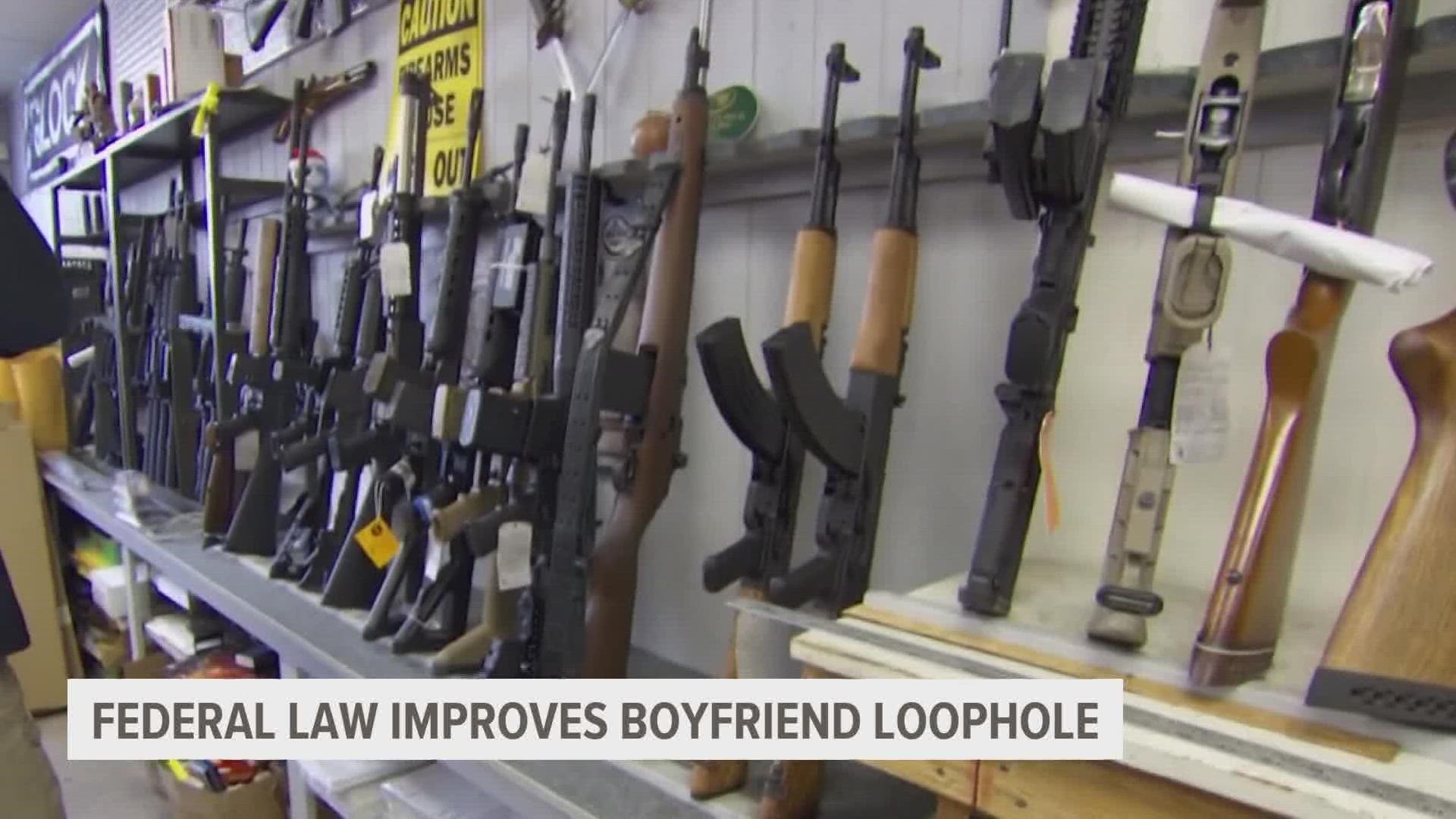DES MOINES, Iowa — If you or someone you know needs help in an abusive relationship, call 1-800-770-1650 or text ‘IOWAHELP’ to 20121.
Recent gun control legislation may be the first step in supporting victims of domestic violence, advocates say.
In June, President Joe Biden signed the Bipartisan Safer Communities Act.
The bill, passed after recent gun rampages in Buffalo, New York and Uvalde, Texas, incrementally toughens requirements for young people buying guns, denies firearms to more domestic abusers and helps local authorities temporarily take weapons from people judged to be dangerous.
"Unfortunately, it took significant and additional tragedies to get this action," said Sandi Tibbets Murphy, director of the Iowa Attorney General Office's Crime Victim Assistance Division. "But it's a step that we haven't seen in many, many, many years."
The legislation is being praised by domestic violence advocates like Tibbets Murphy for the protections it provides victims who may be dating a violent abuser.
"Current or recent, romantic or intimate relationship are now subject to the prohibition on firearm possession if they are convicted of a misdemeanor crime of domestic violence," said Tibbets Murphy.
This is a major change to what advocates commonly refer to as "the boyfriend loophole". Prior to this legislation, an individual with a domestic violence conviction would be restricted from owning a gun - but only under certain conditions.
In order to qualify, the victim had to live with the abuser, share a child with the abuser or be the abuser's current or former spouse.
The Bipartisan Safer Communities Act changes this to include dating couples as well.
"I think a lot of times when people think of boyfriend-girlfriends, they're thinking about the high school crushes or college romances," said Mary Ingham, executive director of Crisis Intervention Service. "A lot of people in their 50s, and their 60s and their 70s ... are dating.
The law isn't retroactive, meaning it only applies to convictions which occur after it was signed.
Orders or protections will not trigger the firearm prohibition. It must be a conviction for those dating their abuser.
"It's for five years, it's not necessarily a lifetime," Ingham said. "And so again, it helps tighten that loophole, but there's still work to be done. But any positive movement is we see as a win."
However, advocates say there's much more work to do. For example, figuring out a system for enforcing this firearm prohibition once it's been ordered.
"The other caveat we say about federal restrictions is they are federal restrictions, which poses a challenge for local law enforcement to to enforce those," said Tibbets Murphy.

